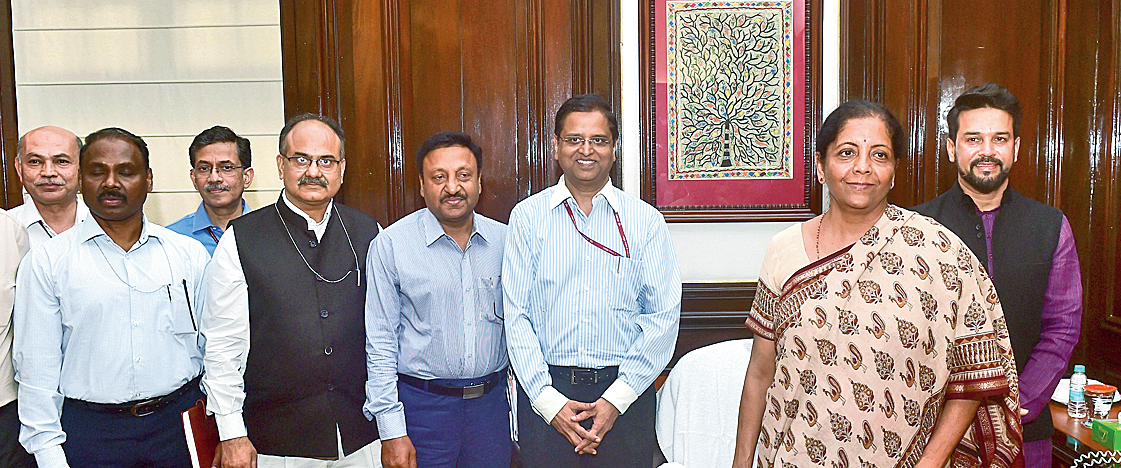Finance minister Nirmala Sitharaman has a daunting task to restore the country’s economic health, wracked by falling growth rate and rising employment.
The country’s first full-time woman finance minister will also have to contend with bad loans that have savaged the banking system and an industry that has shown a marked aversion towards fresh investments.
She will also need to keep the government’s books in order, with the fiscal deficit in 2018-19 at around 3.4 per cent of GDP.
After breaking through the glass ceiling as the first women to be the defence minister in the earlier Modi government, Sitharaman took up the reins of finance after Arun Jaitley opted out due to health reasons.
Sitharaman, 60, is set to present the first budget of the new government in July. The JNU alumni will be the second women to present the budget after Indira Gandhi, who as Prime Minister briefly took over the finance portfolio and presented the budget in 1970.
In the coming budget, she will have to address the slowdown in growth and consumption and the lack of a pick-up in private investment on an urgent basis.
The economy grew 6.8 per cent in the last fiscal against 7.2 per cent in 2017-18. In the fourth quarter of 2018-19, the economy grew 5.8 per cent, much less than 6.6 per cent in the third quarter.
Unemployment rate at 6.1 per cent in 2017-18 (June-July) is the highest in 45 years. The government claims the figures cannot be compared with the previous year as the methodology for calculating unemployment has changed.
Faced with a slowdown in the world economy, Sitharaman will have to push growth by higher government spending and revive consumer demand through tax cuts.
But she has limited headroom as the twin strategy of higher spending and tax cuts will stretch the fiscal deficit and risk crowding out of private investment and inflation.
Data showed the fiscal deficit in 2018-19 at 3.39 per cent of GDP, marginally lower than 3.4 per cent estimated in the budget because of an increase in non-tax revenue and lower expenditure. The fiscal deficit for this fiscal has been set at 3.4 per cent of GDP.
Sitharaman has had stints with the Agricultural Engineers Association, UK, in London and Price Waterhouse, London, where she was senior manager, research and analysis. During this time, she worked briefly with BBC World Service.
On her return to India, she served as deputy director at the Centre for Public Policy Studies in Hyderabad.
Sitharaman, a Rajya Sabha member, needs to simplify the GST filing process while reducing the multiple tax structure. The BJP government had faced severe criticism over the hurried implementation of the GST.
She has to allocate funds in such a way that it should lead to maximum job creation in the economy. Weak PSU banks require urgent recapitalisation so that they can start lending.











